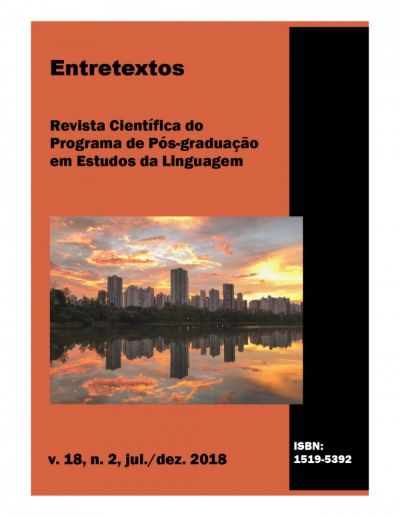Contextualism vs minimalism: a debate about the (in)dependence between Semantics and Pragmatics
DOI:
https://doi.org/10.5433/1519-5392.2018v18n2p219Keywords:
Contextualism, Minimalism, Semantics, PragmaticsAbstract
This paper has as its main goal to present the debate between two main opposite theoretical trends: semantic minimalism and semantic contextualism. We shall argue that the core of their dispute is mainly about close relationship between semantics and pragmatics on what concerns the meaning of a sentence and its possible influence of the context of utterance on its understanding. To minimalists Cappelen and Lepore (2005), the meaning of a sentence is largely determined by its grammatical components; according to them, the context of utterance does not influence the semantic content of a sentence, except for the case of indexicals. The contextualists, such as Recanati (2010), on the other hand, argue that the context modalizes the semantic content of a sentence: different meanings may be attributed to the same sentence, depending on the sense of the utterance. The debate between these two distinct approaches seems to allude to how far does semantics depends on pragmatics, whether they are in a relation when it comes to deal with meaning and context. When we take minimalism into account, semantics and pragmatics are separated research areas; however, when we take the contextualist approach, these areas are largely dependent on each other; that is, the truth conditions of a sentence depend on the contextual information about the speech act.Downloads
References
BEZUIDENHOUT, Anne. Truth-conditional pragmatics. Philosophical Perspectives, Malden, MA, v. 16, p. 105-134, 2002.
CAPPELEN, H.; LEPORE, E. Insensitive Semantics - a defense of Semantic Minimalism and Speech Act Pluralism. CAPPELEN, Herman; LEPORE, Ernest. Insensitive semantics: a defense of semantic minimalism and speech act pluralism. Hoboken, NJ: Blackwell Publishing, 2005.
CAPPELEN, Herman; LEPORE, Ernest. Précis of insensitive semantics. Philosophy and Phenomenological Research, Buffalo, NY, v. 73, n. 2, p. 425- 434, 2006.
FREGE, Gottlob Sobre o sentido e a referência. In: FREGE, Gottlob. Lógica e filosofia da linguagem. Tradução de Paulo Alcoforado. São Paulo: EdUSP, 2009. p. 129-158.
FREGE, Gottlob. On concept and object. In: GEACH, Peter; BLACK, Max (ed.). Translations from the philosophical writings of Gottlob Frege. 2. ed. Oxford: Basil Blackwell, 1960. p. 42-55.
LEVINSON, Stephen C. Pragmática. São Paulo: Martins Fontes, 2007.
MORAVCSIK, Julius M. Meaning, creativity, and the partial inscrutability of the human mind. Stanford, CA: CSLI Publications, 1998.
RECANATI, François. Truth-conditional pragmatics. Oxford, NY: Clarendon Press, 2010.
SEARLE, John R. Speech acts: an essay in the philosophy of language. Cambridge, UK: Cambridge University Press, 1969.
TRAVIS, Charles. Unshadowed thought: representation in thought and language. Cambridge, MA: Harvard University Press, 2000.
WITTGENSTEIN, Ludwig. Investigações filosóficas. Tradução de José Carlos Bruni. São Paulo: Nova Cultural, 1999.
Published
How to Cite
Issue
Section
License
Copyright (c) 2018 Entretextos

This work is licensed under a Creative Commons Attribution 4.0 International License.
Entretextos adota a Licença Creative Commons Attribution 4.0 International, portanto, os direitos autorais relativos aos artigos publicados são do/s autor/es.
Sob essa licença é possível: Compartilhar - copiar e redistribuir o material em qualquer suporte ou formato. Adaptar - remixar, transformar, e criar a partir do material, atribuindo o devido crédito e prover um link para a licença e indicar se mudanças foram feitas.























